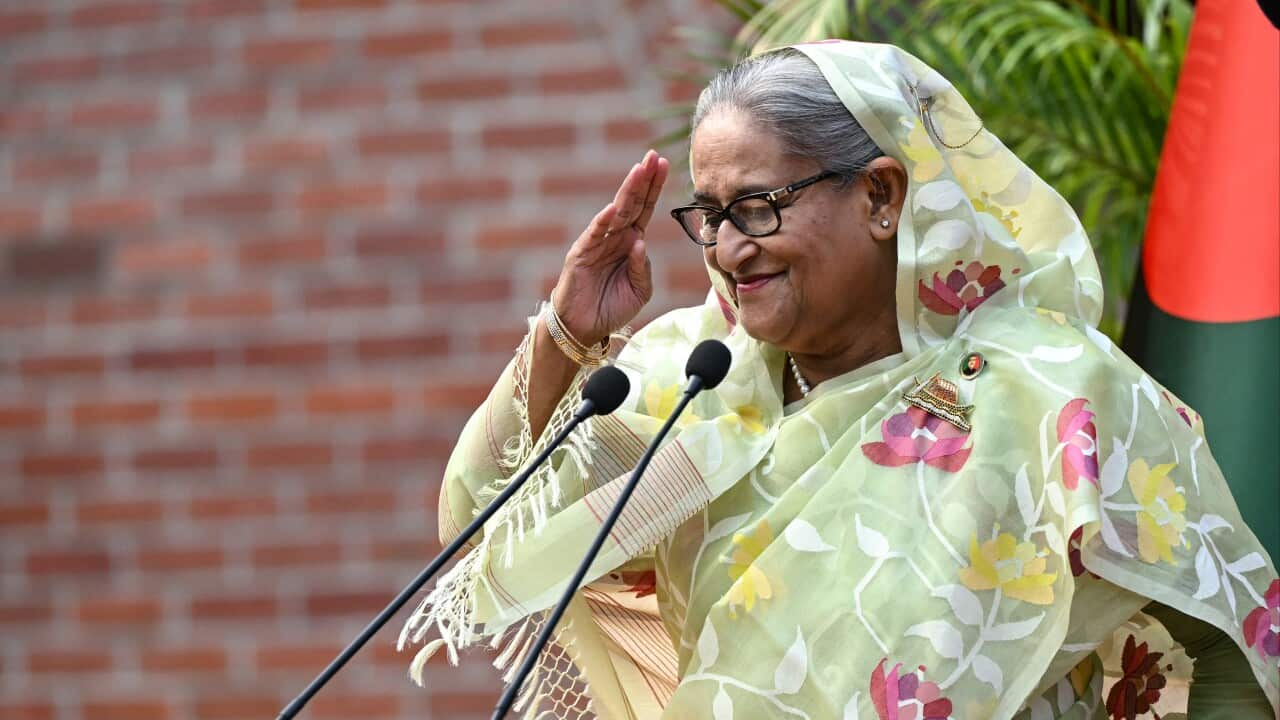A Bangladesh court has sentenced ousted Prime Minister Sheikh Hasina to death, concluding a months-long trial that found her guilty of ordering a deadly crackdown on a student-led uprising last year.
The ruling is the most dramatic legal action against a former Bangladeshi leader since independence in 1971 and comes months ahead of parliamentary elections expected to be held in early February.
Hasina's Awami League party has been barred from contesting and it is feared that Monday's verdict could stoke fresh unrest ahead of the vote.
The International Crimes Tribunal, Bangladesh's domestic war crimes court located in the capital Dhaka, delivered the verdict amid tight security and in Hasina’s absence.
She fled to India in August 2024 at the height of the uprising against her government.
Hasina, 78, received a life sentence under charges for crimes against humanity and the death sentence for the killing of several people during the uprising.
Cheers and claps broke out in the packed courtroom as the death sentence was pronounced.
Hasina says verdict 'politically motivated'
The verdict can be appealed in the Supreme Court.
But Hasina's son and adviser, Sajeeb Wazed, told Reuters on the eve of the verdict that they would not appeal unless a democratically elected government took office with the Awami League’s participation.
Reacting to the verdict, Hasina said the ruling had come from a "rigged tribunal" established and presided over by an unelected government with no democratic mandate.
"They are biased and politically motivated," she said in an e-mailed statement sent to media outlets soon after the verdict.
"In their distasteful call for the death penalty, they reveal the brazen and murderous intent of extremist figures within the interim government to remove Bangladesh’s last elected prime minister, and to nullify the Awami League as a political force," she said.
Worst violence since 1971
During the trial, prosecutors told the court that they had uncovered evidence of her direct command to use lethal force to suppress a student-led uprising in July and August 2024.
According to a United Nations report, up to 1,400 people may have been killed during the protests between July 15 and August 5, 2024, with thousands more injured — most of them by gunfire from security forces — in what was the worst violence in Bangladesh since its 1971 war of independence.
Hasina was represented by a state-appointed defence counsel who told the court that the charges against her were baseless and pleaded for her acquittal.
Ahead of the verdict, Hasina dismissed the accusations and the fairness of the Tribunal proceedings, asserting a guilty verdict was "a foregone conclusion".
But the interim government rejected those charges.
"The tribunal has functioned transparently, allowing observers and publishing regular documentation," a government spokesperson told Reuters hours before the verdict. "No credible human rights body has described the current process as politically driven."
Bangladesh has been tense ahead of the verdict, with at least 30 crude bomb explosions and 26 vehicles torched across the country over the past few days. There have been no casualties, however.
The Muslim-majority South Asian country of 170 million people has been governed by an interim administration headed by Nobel Peace laureate Muhammad Yunus since Hasina fled. Although the country has been largely peaceful since, political stability is yet to return.
In an interview with Reuters last month, Hasina warned of growing anger among supporters of the Awami League and said that millions of party loyalists would boycott the parliamentary elections in February.
On Monday, security remained tight across Dhaka and other major cities, with paramilitary forces deployed around key government buildings and the tribunal complex.
Authorities said they were prepared for any trouble after the verdict.
For the latest from SBS News, download our app and subscribe to our newsletter.

